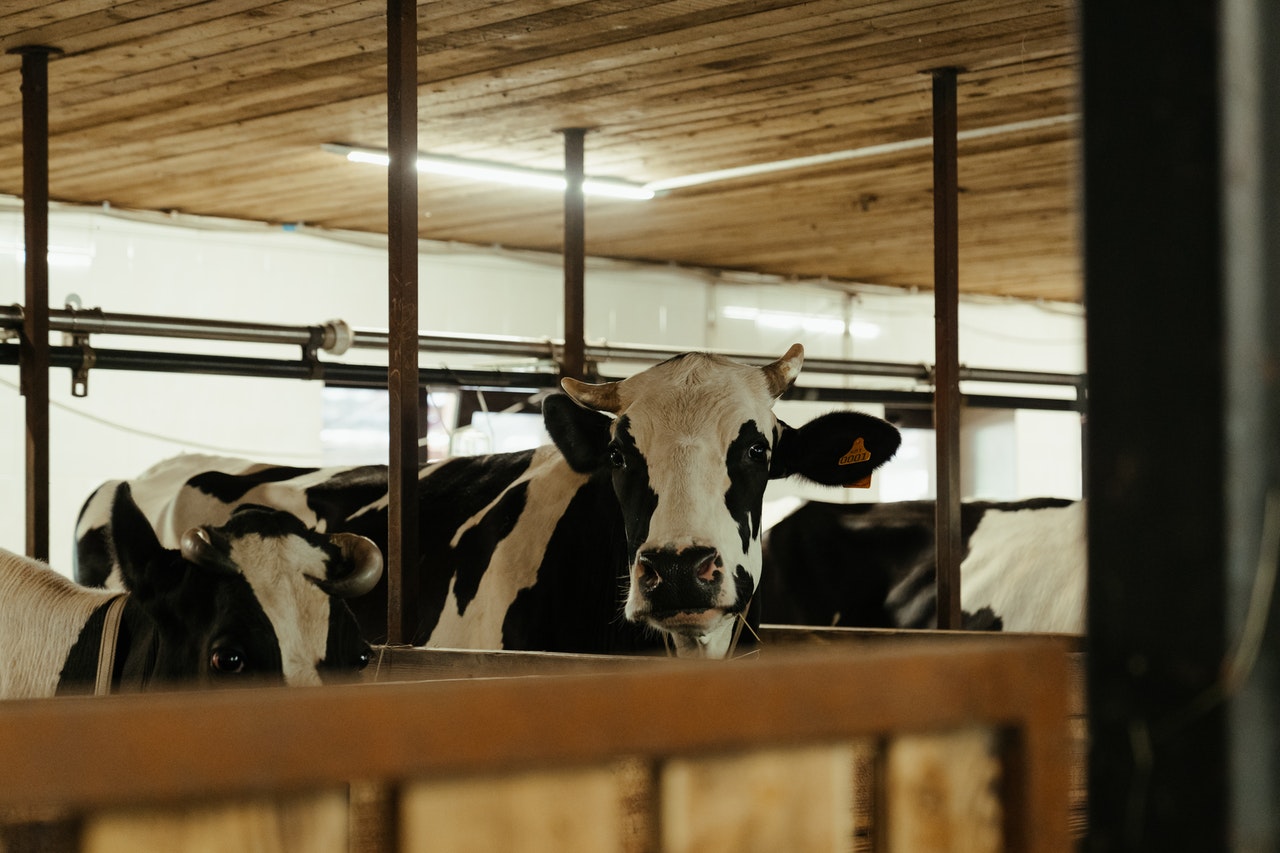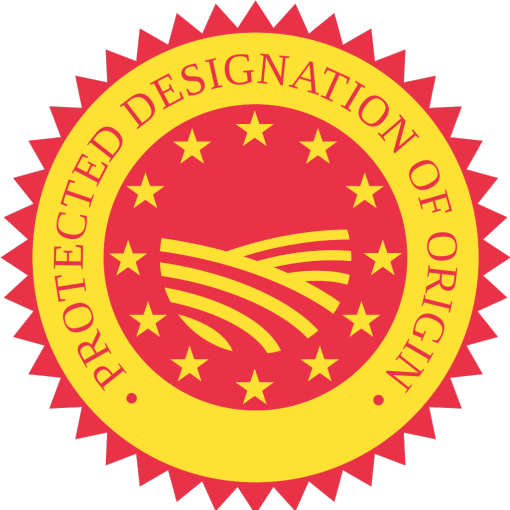The dairy industry has become one of Malta’s cultural hallmarks. There is as much appreciation for the country’s domestically produced milk as much as there is pride in the country’s traditional ġbejna.
Despite being the smallest, and most densely populated country in the European Union with just 316 square kilometres of land, Malta has developed a diverse agricultural sector with thousands of cows, sheep and goats contributing to its dairy industry.
According to the latest census of agriculture, as of 2022 Malta had a total of 10,449 farm holdings, with a total of 5,996 dairy cows, 10,227 female sheep and 2,768 female goats.
The country’s farms are fairly concentrated in the country’s western and northern regions.
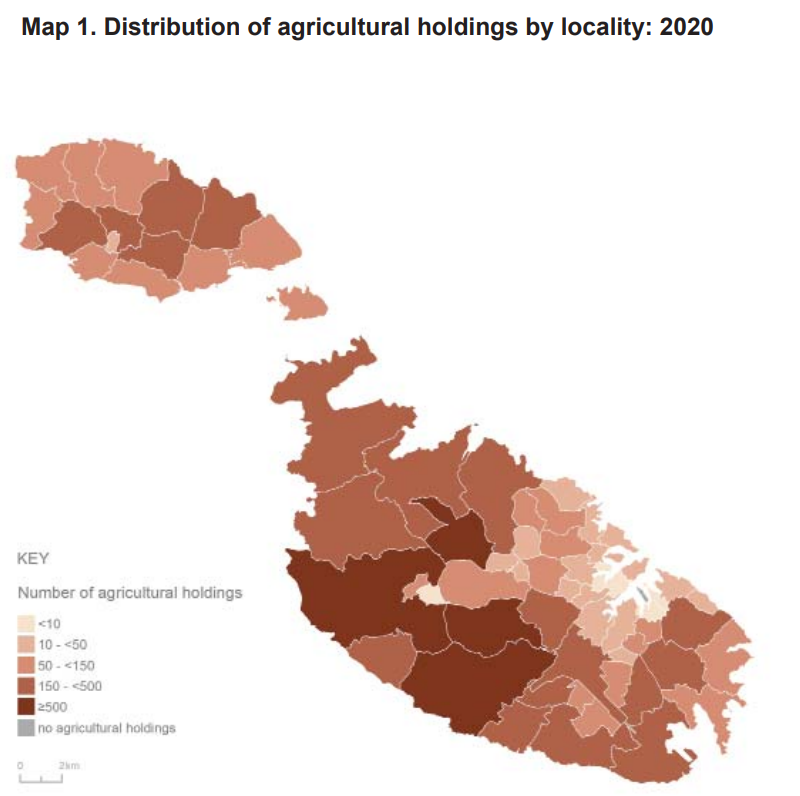
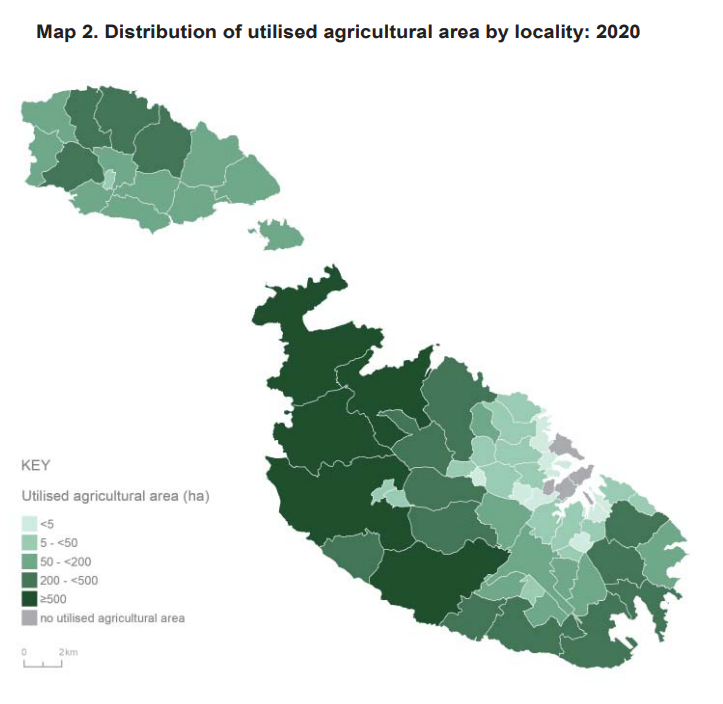
Farm ownership is incredibly decentralised in Malta with 98.7 per cent of the being run by sole holders. Partnerships and companies only own 1.3 per cent of the country’s farms.
This also means that most farms are very small, with 69.7 per cent being smaller than one hectare (0.01 square kilometres).
It is also worth noting the demographic situation of the country’s farmers. From a workforce of 13,511, 32.1 per cent are 65+ years old and only 9.31 per cent are under the age of 35.
A cooperative-led quasi-monopoly
Despite the highly decentralised agricultural ecosystem, the Koperattiva Produtturi tal-Ħalib (KPH) which was established in 1958 has effectively brought the country’s dairy producers together.
KPH is a Maltese cooperative which owns 70 per cent of Malta Dairy Products Ltd (MDP), the company behind Benna, the country’s most recognisable brand of dairy products. The other 30 per cent is owned by the Government of Malta.
MDP claims that the country’s roughly 6,000 cows produce around 105,000 litres of milk a day. This translates to roughly 17.5 litres a day per cow, enough to singlehandedly fill just as many cartons of milk.
Local milk is also used to create a broad array of products such as yoghurts, butter and cheeses, one of which being the locally cherished ġbejna (cheeselet).
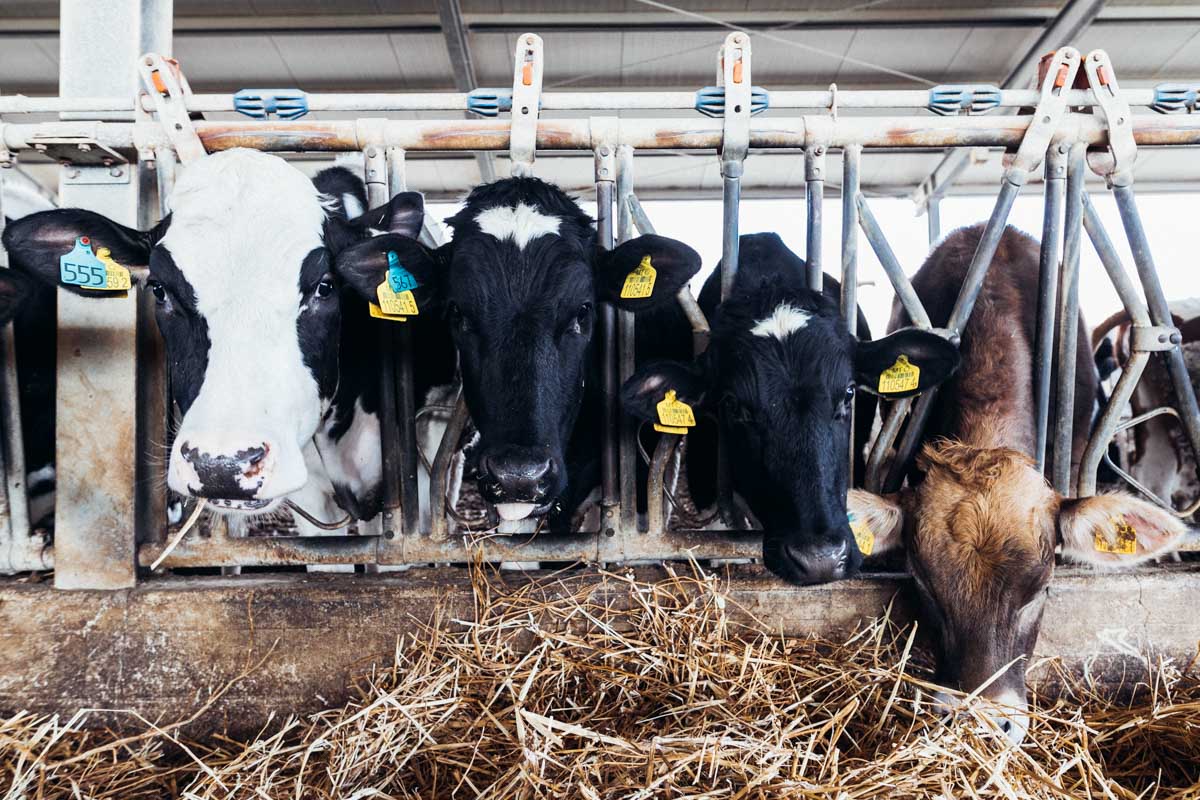
The company’s ‘quasi-monopoly’ over the dairy industry in the country has in the past triggered concerns that it has abused its dominant position in the local market.
These concerns sparked complaints when prices of the company’s products increased by 10 to 15 per cent in 2019, which led to an investigation by the Malta Competition and Consumer Affairs Authority’s Office for Competition (MCCAA).
However, the company was eventually cleared of any abuse, since the price hike was triggered by rising costs in raw materials, and the company continued maintaining very low profit margins.
In 2022 prices spiked once again due to the disruption caused by the Russian invasion of Ukraine, since Malta was heavily reliant on imports from Ukraine for grains and cereals.
While 47 per cent of Malta’s arable land is used for growing animal forage Malta is highly dependant on importing feed for its animals, since the country does not produce enough of what is required.
Ġbejna or ġbejna tan-nagħġa?
A fairly contentious issue has been the effort to have ġbejniet receive a protected designation of origin (PDO) quality label.
The PDO is a label which is reserved for the names of products which have strong links between their characteristics and their geographic origins.
Quality assurance, cultural preservation and higher market value are among the benefits of obtaining a PDO label, as it also grants the product increased legal protection against imitation.
The consequence of a PDO label is that producers would have to adhere to a strictly traditional recipe and herding guide which is approved by the EU to market their product with the labelled name.
Thus far Malta is the only EU country that does not have any food with a PDO label.
Efforts to have Maltese ġbejna receive special certification date have been ongoing for several years.
In 2007, a project called T-Cheesimal was launched to investigate traditional cheeses in Malta and Italy over a five-year study.
The project found that ġbejniet were traditionally entirely made out of milk from sheep reared in local flocks.
Efforts to have ġbejniet recognised as a protected product were initially shot down in 2021 by the MCCAA since the regulator found that the term ġbejna became generic, and is used to describe all kinds of cheeselets.
If the initial application submitted by Xirka Produtturi Nagħaġ u Mogħoż, an association of sheep and goat herders, to have the word ‘ġbejna’ receive a PDO label was accepted, then anyone who produces cheeselets with goat or cow’s milk would no longer be allowed to call them ġbejniet.
One of the main opponents of the initial application was the KPH. The company produces ġbejniet from cow’s milk.
While it had no issue with a PDO application being submitted for for ‘ġbejna tan-nagħġa’ (cheeselet from sheep milk), it took great issue with an application for the catch-all term ġbejna.
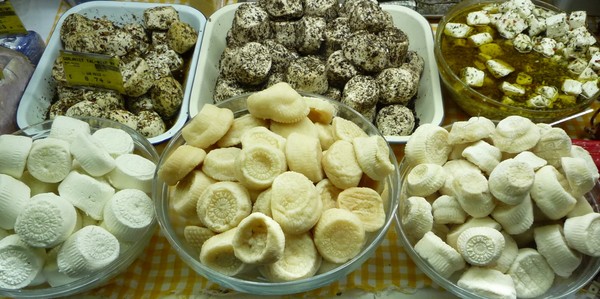
KPH president, Brian Vella, had likened the situation to bread.
“It’s the same as ħbejża. Imagine one particular breadmaker decided to take ownership of the word ‘ħbejża’ and not allow any other bakers to use it.”
The association of sheep and goat herders subsequently revised their application for a PDO label with the MCCAA, this time for ‘ġbejna tan-nagħaġ’.
This led to an objection by the Malta Youth in Agriculture Foundation which claimed that the revised application weakened the validity of the PDO label and enabled mass production of the artisanal product.
Nevertheless, the MCCAA did not reject the revised submission and informed applicants in October 2022 that it would send the application to the European Commission for approval.
Training and Education
There are a number of courses available in Malta’s education institutions to get involved in agriculture, with degrees and diplomas in available in the field, however, if someone wants to specialise in dairy then the Institute of Tourism (ITS) provides a course dedicated to producing cheese and other fermented dairy products.
The Government also organises a near-annual event called the Malta AgriFair through the Ministry for Agriculture of Fisheries and Animal Rights, which seeks to promote the local industry and its technological developments.
The future of the dairy industry and the EU Common Agricultural Policy
In the short-term the country’s dairy industry will likely continue chugging along well, however, the ageing workforce involved in the sector is of great concern.
Being dependent on a workforce which is near or past the age of retirement does not inspire long-term confidence.
Malta’s small size also makes arable land a commodity. Ageing farmers or individuals inheriting farmland from their families might be tempted to get a quick buck by selling the plot to be developed into residential units rather than opting to toil the soil.
Between 2010 and 2020 the number of farms shrunk by 14.8 per cent and utilised agricultural area declined by 6.2 per cent. Meanwhile, the number of cows also declined, by 7.9 per cent, but the number of sheep increased by 36.3 per cent and goats increased by 31.5 per cent.
Regardless, there are efforts to turn things around.
The European Commission approved Malta’s Common Agricultural Policy strategic plan for 2023 – 2027 on 30th November 2022 which aims to address a number of the industry’s weaknesses.
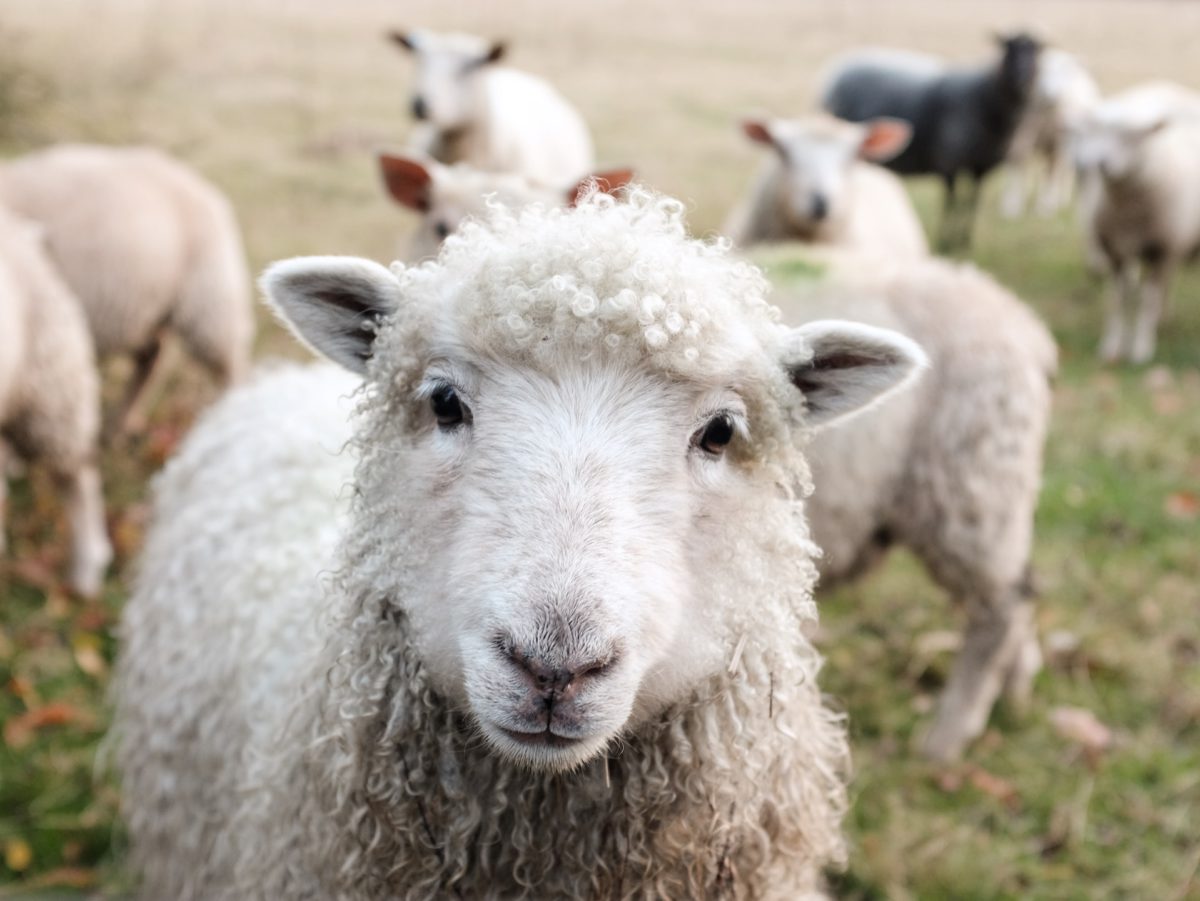
The Common Agricultural Policy (CAP) is one of the EU’s oldest major policies which aims to support the agricultural sector of member states through subsidies and other financial assistance.
Malta is expected to receive over €122 million in EU funding through the CAP. €42.9 million of that money is dedicated to the direct payment to farmers to maintain production levels and support farmers’ income.
Meanwhile, just under €5 million is dedicated to helping young farmers set up and create successful agricultural activity.
Whether by 2027 the funds will lead to a dairy industry with a younger, more robust workforce is hard to predict, however, it is not an issue that is being swept under the rug.
Malta International Airport closes in on one million passengers in June
Meanwhile, aircraft traffic movement rose by 4.5 per cent year on year
Malta’s population hits 574,250 in 2024, up by 1.9%
Total net migration was at 10,614 persons, the vast majority being non-EU citizens
Service excellence as a cornerstone of Avenue 77 workspace experience
Providing excellent service is a foundational aspect of what makes working at Avenue 77 a great experience


